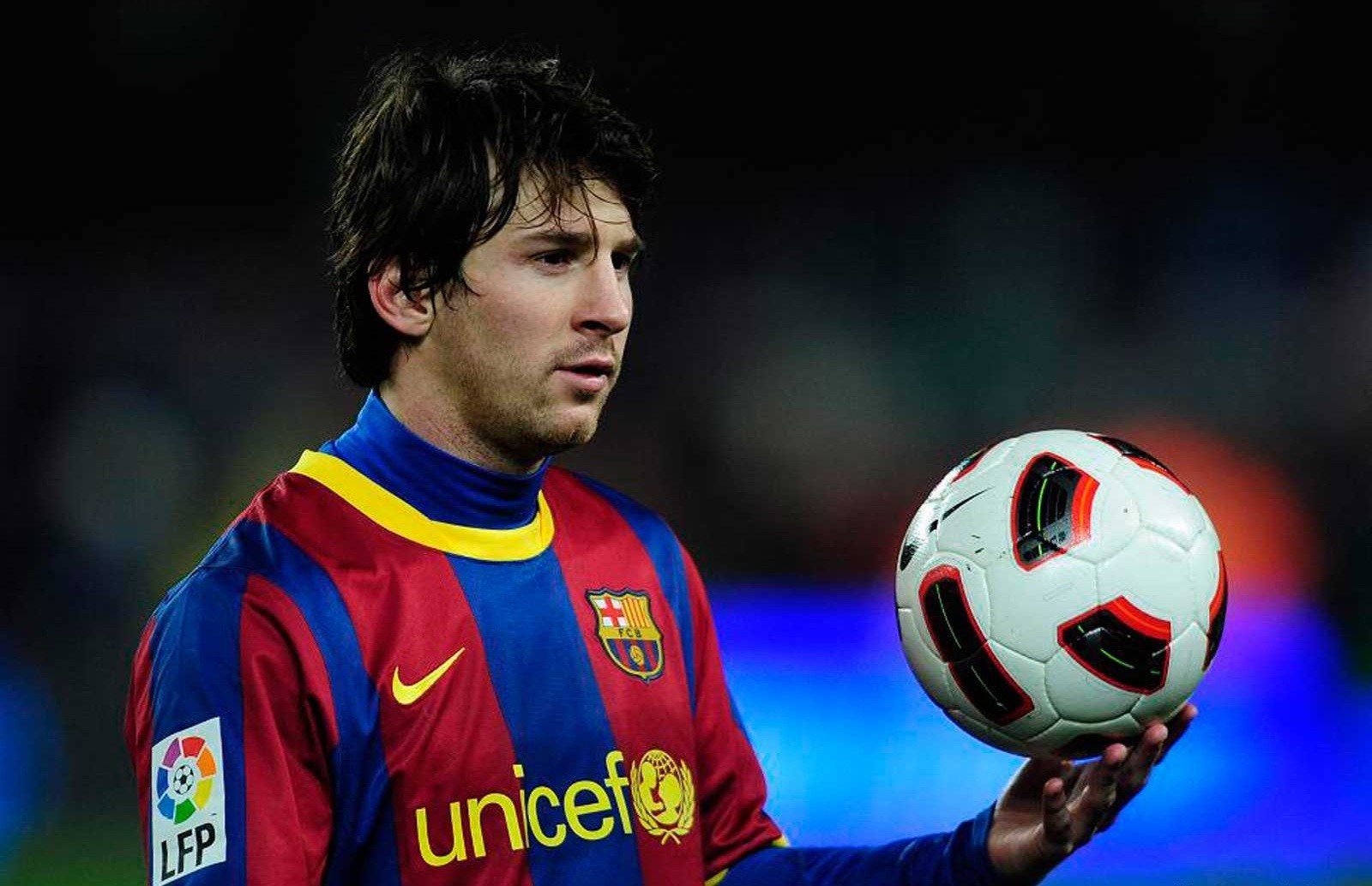
From Boots to the Bench: The Enduring Allure and Complexities of Footballers Who Become Managers
The transition from the hallowed turf to the tactical dugout is one of football’s most enduring narratives. For countless players, the final whistle of their playing career isn’t an end, but merely a halftime break before embarking on the demanding, often unforgiving, journey of management. The allure is understandable: a deep-seated passion for the game, an intimate understanding of its nuances, and the desire to shape its future. Yet, for every Pep Guardiola or Zinedine Zidane who seamlessly translates on-field brilliance into managerial glory, there are countless others who find the leap a bridge too far, highlighting the stark differences between performing and leading. This article delves into the fascinating world of footballers who become managers, exploring the advantages their playing careers bestow, the formidable challenges they face, and what ultimately distinguishes the successful few from the struggling many.
The Natural Progression: A Seemingly Obvious Path
On the surface, it seems like a natural evolution. Who better to guide a team than someone who has lived and breathed the game at its highest level? Former players bring a wealth of practical experience, tactical understanding, and an inherent feel for the rhythm of a match. They’ve experienced the pressure of a packed stadium, the agony of defeat, and the euphoria of victory. This shared experience often fosters an immediate sense of respect and empathy with the players they now oversee.
One of the most significant advantages is tactical acumen honed by experience. A former midfielder, for instance, has a profound understanding of space, passing lanes, and pressing triggers from a central perspective. A defender knows the intricate dance of offside traps and defensive solidarity. This innate understanding, developed over thousands of hours of training and competitive play, often provides a foundation for developing a managerial philosophy. They can "read" the game in real-time, anticipate movements, and make swift adjustments that someone without that playing background might miss.
Furthermore, instant respect is often granted to former star players. When a legendary figure walks into a dressing room as a manager, players are often already predisposed to listen. The stories of their playing days, their trophies, and their personal achievements create an aura that can command attention and facilitate easier communication, at least initially. This respect can be a powerful tool for galvanizing a squad and instilling belief, especially in the early days of a manager’s tenure.
Finally, player empathy and man-management are often cited as strengths. Having been in the players’ boots, former professionals understand the psychological pressures, the physical demands, and the emotional rollercoasters of professional football. They know what it feels like to be dropped, to make a mistake, or to be struggling for form. This empathy can translate into more effective communication, a better understanding of individual player needs, and the ability to foster a strong, cohesive team spirit. They speak "the language" of the dressing room, often bypassing the need for complex analogies or theoretical explanations.
The Formidable Challenges: A Different Game Entirely
Despite these compelling advantages, the transition from player to manager is fraught with unique challenges. The very skills that made them exceptional players can sometimes hinder their managerial prospects.
Perhaps the biggest hurdle is the psychological shift from individual performer to collective leader. As a player, success often hinges on individual brilliance within a team structure. As a manager, it’s about orchestrating 25-30 individuals, managing egos, motivating the unmotivated, and making tough decisions that impact livelihoods. The camaraderie of the dressing room, once a source of strength, can become a trap if a manager struggles to establish authority over former teammates or friends. The "friendship" dynamic must quickly transform into a professional hierarchy.
The weight of expectation is another significant burden, particularly for former superstar players. Fans, media, and club boards often expect immediate success, assuming that on-field genius translates directly to managerial prowess. This intense scrutiny can be crippling, leaving little room for a learning curve. Frank Lampard and Steven Gerrard, two legendary English midfielders, experienced this firsthand at Chelsea and Aston Villa respectively. While they showed flashes of promise, the pressure cooker environments of top-tier management ultimately proved too intense for their relatively inexperienced managerial careers at that level.
Furthermore, tactical rigidity or an inability to adapt can be a downfall. Some former players, having perfected a particular style of play during their careers, struggle to evolve or implement different tactical approaches. The modern game is fluid, demanding constant innovation and a willingness to embrace new ideas, data analytics, and sports science. A manager who relies solely on their playing instincts without continuously learning and adapting risks being left behind.
Finally, man-management beyond just empathy becomes crucial. It’s not just about understanding players; it’s about making unpopular decisions – dropping a star, selling a fan favorite, or publicly criticizing a performance. These are aspects players rarely experience from the other side, and the ability to detach emotionally and make objective, often ruthless, choices is a skill many struggle to develop.
Case Studies in Success: The Maestros of the Dugout
Despite the pitfalls, several former players have not only navigated the transition but have redefined managerial excellence.
Johan Cruyff stands as the spiritual godfather for many modern player-managers. His revolutionary "Total Football" philosophy, honed as a player at Ajax and Barcelona, was meticulously translated into his coaching methods. He not only won trophies but fundamentally reshaped the identity of clubs, emphasizing fluid, attacking football and a strong youth academy pipeline. His influence on Pep Guardiola is undeniable.
Pep Guardiola himself is arguably the epitome of a successful player-turned-manager. A product of Cruyff’s "Dream Team" at Barcelona, Guardiola imbibed the philosophy and then elevated it with his meticulous attention to detail, tactical innovation, and relentless pursuit of perfection. His success at Barcelona, Bayern Munich, and Manchester City demonstrates an unparalleled ability to adapt his core principles to different leagues and cultures, winning an astonishing array of domestic and European titles.
Zinedine Zidane provides a different model of success. While his tactical blueprint might be less overtly revolutionary than Guardiola’s, his charisma, calm demeanor, and innate ability to manage big personalities at Real Madrid were instrumental in winning three consecutive Champions League titles. As a former "Galactico," he commanded immediate respect, and his quiet authority allowed him to unify a dressing room full of superstars.
Carlo Ancelotti offers a masterclass in longevity and adaptability. A distinguished midfielder for Roma and AC Milan, Ancelotti has become one of the most decorated managers in history, winning league titles in all five of Europe’s top leagues and four Champions League trophies. His success lies in his exceptional man-management skills, tactical flexibility, and ability to build strong relationships with players, earning him the affectionate moniker "The Godfather."
Franz Beckenbauer, "Der Kaiser," achieved the rare feat of winning the World Cup as both a player (1974) and a manager (1990) for Germany. His natural leadership and deep understanding of the game allowed him to transition seamlessly, guiding a talented but sometimes tumultuous German squad to glory.
Diego Simeone embodies the warrior spirit he displayed as a player for clubs like Inter Milan and Lazio. As manager of Atlético Madrid, he has forged a team in his own image – resilient, defensively robust, and intensely competitive. His playing career instilled in him the grit and determination that define his managerial philosophy, turning Atlético into a perennial challenger to the La Liga giants.
The Mixed Fortunes and Learning Curves
For every success story, there are cautionary tales. Gary Neville’s brief, ill-fated stint at Valencia underscored the challenge of stepping into a foreign environment without prior managerial experience. Thierry Henry, one of the Premier League’s greatest ever players, struggled in his first two managerial roles at Monaco and Montreal Impact, highlighting that playing brilliance doesn’t automatically confer coaching acumen. Andrea Pirlo, another midfield maestro, found the top job at Juventus challenging, lasting only a season.
These examples are not failures of character or footballing intelligence, but rather a testament to the fact that management is a distinct profession requiring a different skill set. It demands patience, resilience in the face of setbacks, an ability to delegate, and the capacity to absorb and process vast amounts of information – from opposition analysis to player welfare.
The Essential Qualities for Managerial Success
What, then, separates the successful player-managers from those who falter?
- Adaptability: The game is constantly evolving. Successful managers, regardless of their playing background, are continuous learners, willing to adapt their tactics, training methods, and even their philosophies.
- Clear Philosophy & Identity: The best managers have a defined vision for how their team should play and how their club should operate. This clarity provides direction and purpose.
- Exceptional Communication: The ability to articulate ideas, motivate players, and inspire belief is paramount. This includes both tactical instruction and emotional connection.
- Resilience and Mental Fortitude: Management is a high-pressure job. The ability to bounce back from defeats, withstand criticism, and maintain a positive outlook is crucial.
- Leadership Beyond the Field: This involves managing staff, dealing with club hierarchies, handling media scrutiny, and making tough decisions without succumbing to sentiment.
- Willingness to Learn from Others: Even the greatest players need to study the art of management, often starting in lower leagues or as assistant coaches, learning from experienced mentors.
Conclusion: The Enduring Narrative
The journey from boots to the bench remains one of football’s most compelling narratives. It speaks to the enduring passion of those who dedicate their lives to the beautiful game, and their desire to continue shaping its destiny. While a distinguished playing career can provide a valuable foundation of tactical understanding, instant respect, and player empathy, it is by no means a guarantee of managerial success.
The modern game, with its increased tactical complexity, data analytics, and intense media scrutiny, demands even more from its leaders. The successful player-managers are those who recognize that the transition requires not just a change of attire, but a fundamental shift in mindset – from individual brilliance to collective orchestration, from receiving instructions to giving them, and from reacting to the game to proactively shaping it. The allure will always be there, but only a select few possess the unique blend of leadership, adaptability, and vision to truly master the art of management.
:max_bytes(150000):strip_icc()/451934088-56aa3b585f9b58b7d002c1a6.jpg)


